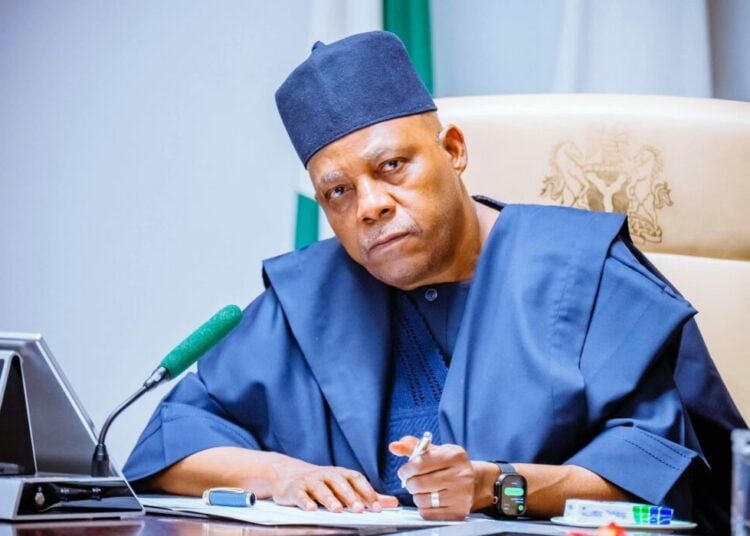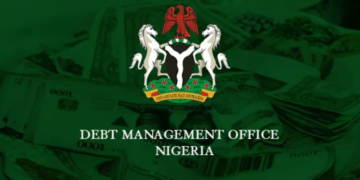The Vice President Kashim Shettima’s impassioned address at the 30th Conference of the Parties (COP30) in Belém, Brazil, was everything a climate summit speech should be: bold, urgent, and filled with commitments that sound transformative on paper.
Nigeria pledged to reduce emissions by 32 per cent by 2035, unveiled a National Carbon Market Framework, established a Climate Change Fund, and positioned itself as a leader in Africa’s climate response. These are significant declarations.
Senator Shettima was right to demand that COP30 be “remembered as the moment when the world moved from pledges to performance, from ambition to action, and from dialogue to delivery.” That is precisely what the global climate response needs. The Earth is not interested in our speeches or our frameworks. It responds only to actual reductions in greenhouse gas emissions, actual protection of forests and oceans, and actual transitions from fossil fuels to renewable energy.
The National Carbon Market Framework sounds promising. The idea is to enable Nigeria to generate, trade, and retire carbon credits in alignment with the Paris Agreement, with proceeds flowing into the Climate Change Fund to support communities affected by floods, droughts, and desertification. This is good policy design. But policy design has never been Nigeria’s problem. Our challenge is implementation.
Before we celebrate our carbon market framework, we need to ask: who will regulate this market? How will we ensure transparency in carbon credit transactions? What prevents this from becoming another avenue for rent-seeking and corruption?
The Vice President stated that Nigeria aims to mobilise up to $3 billion annually through its climate finance architecture. That is an ambitious target, which speaks to the scale of investment required. But Nigeria’s track record on managing large pools of dedicated funds is troubling. We have seen what happened to the Ecological Fund, which was meant to address environmental disasters but has been plagued by allegations of mismanagement and diversion.
In our view, Nigeria’s position on climate justice is correct and necessary. The Vice President rightly pointed out that countries that contributed least to the climate crisis are paying the highest price. At the same time, nations that have benefited from centuries of extraction must now lead the way in restoration. This is an accurate diagnosis. Developed countries have a moral and practical obligation to provide significant climate finance to developing nations.
The global North cannot lecture the global South about emissions while refusing to pay its climate debt. Nigeria should continue making this case forcefully at international fora. But we must be careful not to use climate injustice as an excuse for domestic inaction. Yes, wealthy nations must do more. And yes, Nigeria must also utilise the resources we already have more effectively.
The Great Green Wall Initiative, which Nigeria is implementing across eleven frontline states, is one of the more tangible climate projects mentioned in the Vice President’s address. The goal is to plant over ten million trees and create thousands of green jobs while reversing desertification. This is precisely the kind of project that can deliver both environmental and economic benefits.
However, tree-planting initiatives have a mixed record in Nigeria. Trees are planted during high-profile ceremonies, but there is often no follow-up on survival rates, no maintenance, no protection from grazing animals or human encroachment. If the Great Green Wall is to succeed, it requires long-term commitment, community ownership, and sustained funding beyond the initial planting phase.
Senator Shettima rejected the portrayal of Africa as merely a victim of climate change, arguing that the continent is also a source of solutions. This is a critical frame up. Africa’s forests, wetlands, and oceans are crucial carbon sinks that benefit the entire planet. African youth represent a vast pool of innovation and energy for climate action. But potential is not the same as performance. African countries need to create an enabling environment for that innovation to flourish. This means investing in education, research institutions, and technology infrastructure. It means creating regulatory frameworks that encourage green entrepreneurship rather than stifling it with bureaucracy.
Nigeria’s call for debt-for-nature swaps is a pragmatic approach. Many developing countries are trapped in debt cycles that prevent them from investing in conservation and climate adaptation. Restructuring debt in exchange for commitments to protect ecosystems could free up resources for climate action. The international community should seriously consider this mechanism. But Nigeria must also address its domestic fiscal management. We cannot credibly ask for global climate finance while tolerating the massive leakages and inefficiencies in our own public finances.
The UN Secretary General Antonio Guterres’ admission that the world has failed to stay below 1.5 degrees Celsius is sobering. The climate emergency is accelerating faster than global action.
Every fraction of a degree means more hunger, displacement, and loss, especially for those least responsible for the crisis. This reality makes the gap between rhetoric and action even more dangerous. Nigeria can play a meaningful role in global climate action, but only if we are serious about implementation.





